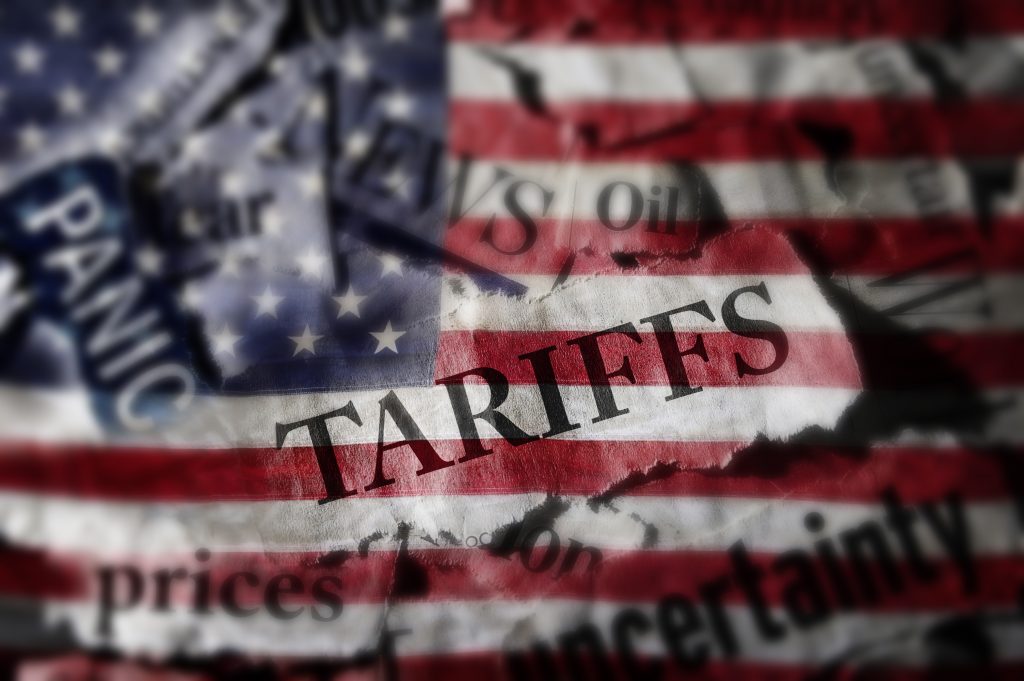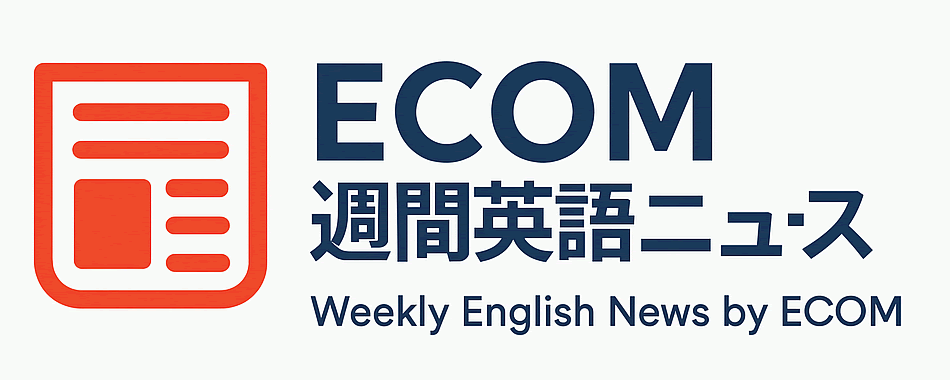
Trump Administration Imposes Sweeping Tariffs, Sparking Global Economic Concerns
On April 5, 2025, President Donald Trump invoked the International Emergency Economic Powers Act of 1977 to declare a national emergency and implement a 10% tariff on all imports, effective immediately. Further, starting April 9, higher tariffs will be imposed on countries with significant trade deficits with the United States, including a 54% tariff on Chinese imports and 20% on goods from the European Union.
The announcement has led to significant volatility in global financial markets. The S&P 500 experienced a nearly 5% decline, marking its sharpest single-day drop since 2020. Similarly, the Nasdaq and Dow Jones Industrial Average fell by 6% and 4%, respectively.
Economists warn that these tariffs may exacerbate inflationary pressures, potentially increasing the U.S. inflation rate from the current 2.8% to nearly 4% by the end of the year. This surge could result in an additional $3,800 in annual expenses for the average American household, affecting costs of essentials such as groceries, clothing, and automobiles.
Internationally, trading partners have expressed strong opposition. Canada announced retaliatory measures, while China and the European Union signaled intentions to implement counter-tariffs. These developments raise concerns about a potential global trade war and its impact on the international economy.
In response to these developments, a bipartisan group of U.S. senators introduced legislation requiring congressional approval for future tariffs imposed by the president, aiming to assert legislative oversight over trade policies.
As the situation unfolds, both domestic and international stakeholders are closely monitoring the economic implications of the Trump administration’s tariff strategy.
On April 5, 2025, President Donald Trump in***** the In********** Em****** Ec***** Po**** Act of 1977 to de***** a na****** em****** and im****** a 10% ta**** on all im*****, ef******* im********. Fu*****, st****** April 9, hi**** ta***** will be im****** on co****** with si******** tr*** de****** with the Un**** St****, in******* a 54% ta**** on Ch***** im***** and 20% on go*** from the Eu****** Un***.
The an********* has led to si******** vo******** in gl**** fi******* ma******. The S&P 500 ex********* a ne**** 5% de*****, ma***** its sh****** si****-day dr** since 2020. Si*******, the Na**** and Dow Jo*** In******** Av***** fe** by 6% and 4%, re**********.
Ec******** warn that these ta***** may ex******** in********** pr*******, po********* in******** the U.S. in******* rate from the cu***** 2.8% to ne**** 4% by the end of the year. This su*** could re**** in an ad******** $3,800 in an**** ex****** for the av***** Am****** ho*******, af******* co*** of es******** such as gr*******, cl*******, and au*********.
In*************, tr***** pa****** have ex******* st**** op********. Canada an****** re********** me*******, while China and the Eu****** Un*** si****** in********* to im****** co****-ta*****. These de*********** ra*** co****** about a po******* gl**** tr*** wa* and its im**** on the in************ ec*****.
In re****** to these de***********, a bi******** group of U.S. se****** in********* le********** re******* co*********** ap****** for fu**** ta***** im****** by the pr*******, ai**** to as**** le********** ov******* over tr*** po******.
As the si******* un*****, both do****** and in************ st*********** are cl***** mo******** the ec****** im********** of the Trump ad************* ta**** st******.
■ Vocaburaly
invoke (a law / an act) to ~
- 例:「President Donald Trump invoked the International Emergency Economic Powers Act of 1977 to declare a national emergency…」
- 解説:invoke は「(法律や権限を)発動する、行使する」という意味で、後ろに目的語(今回であれば法律名など)を置き、その目的である動詞(to declare…)へとつなげる用法。
- 日本語イメージ:「…という法律を根拠として発動して、~を行う」
implement
- 和訳: 実行する、実施する
tariff
- 和訳: 関税
be imposed on ~
- 例:「…higher tariffs will be imposed on countries with significant trade deficits…」
- 解説:impose は「(税や義務を)課す」という意味。be imposed on ~ で「~に課される」という受動態表現。「課す対象」が on の後ろに来る。
- 日本語イメージ:「~に(関税などが)課される」
significant
- 和訳: 重要な、重大な
marking its sharpest single-day drop
- 例:「The S&P 500 experienced a nearly 5% decline, marking its sharpest single-day drop since 2020.」
- 解説:この marking は分詞構文。前の文全体(「株価が5%下がった」)の結果や状態を示す。「~となり、それは…を示す(記録する)」というニュアンス。
- 日本語イメージ:「…となり、それは…という結果を示した(記録した)」
volatility
- 和訳: 変動性、不安定さ
exacerbate
- 和訳: 悪化させる
inflationary
- 和訳: インフレを引き起こす(インフレに関する)
surge
- 和訳: 急増、急上昇
retaliatory
- 和訳: 報復的な
counter-tariff
- 和訳: 報復関税
bipartisan
- 和訳: 超党派の(複数政党にわたる合意)
legislation
- 和訳: 立法、法案
congressional
- 和訳: (米国の)議会の
oversight
- 和訳: 監督、監視(※「見落とし」という意味もありますが、文脈では監督の意)
raise concerns about ~
- 例:「These developments raise concerns about a potential global trade war…」
- 解説:raise concerns about + 名詞(句) で「~に対して懸念を引き起こす、引き上げる(高める)」という表現。
- 日本語イメージ:「~に関して懸念を呼び起こす(懸念が高まる)」
■ 和訳
トランプ政権、大規模な関税を導入し、世界経済への懸念を引き起こす
2025年4月5日、ドナルド・トランプ大統領は1977年の国際緊急経済権限法を発動し、国家非常事態を宣言、全輸入品に対して即時発効の10%の関税を導入しました。 さらに、4月9日からは、米国との貿易赤字が大きい国々に対し、中国からの輸入品に54%、欧州連合からの製品に20%の高関税が課されます。
この発表により、世界の金融市場は大きく動揺しました。 S&P 500は5%近く下落し、2020年以来最大の1日の下げ幅を記録しました。 同様に、ナスダックとダウ平均株価もそれぞれ6%、4%の下落となりました。theaustralian
経済学者たちは、これらの関税がインフレ圧力を悪化させ、現在の2.8%から年末までに4%近くまで上昇する可能性があると警告しています。 これにより、平均的なアメリカの家庭では年間で3,800ドルの追加費用が発生し、食料品、衣料品、自動車などの必需品の価格に影響を及ぼすとされています。
国際的には、貿易相手国が強く反発しています。 カナダは報復措置を発表し、中国や欧州連合も対抗関税を実施する意向を示しています。 これらの動きは、世界的な貿易戦争と国際経済への影響に対する懸念を高めています。
これらの動きに対応し、米国の超党派の上院議員グループは、大統領が将来関税を課す際に議会の承認を必要とする法案を提出し、貿易政策に対する立法府の監督を強化することを目指しています。
状況が進展する中、国内外の関係者はトランプ政権の関税戦略がもたらす経済的影響を注視しています。
ECOMでは、毎週これらの記事を、ディスカッション教材として使え、先生が音読の発音チェックもしてくれます。
興味がある方は体験レッスンをご活用ください。

■ MikeとEmilyのDiscussion
| Mike (American): Hey, Emily, did you catch the news about the new tariffs? President Trump just slapped a 10% tariff on goods coming from the UK. It’s lower than what other countries are facing, but it’s still got everyone talking. Emily (British): I did see that. We’re looking at 10% while China’s getting hit with 54% and the EU with 20%. By comparison, it’s not as steep. Still, it feels like the UK is stuck in the middle of a global trade battle we didn’t start. Mike: I can understand why you’d be concerned. In the States, a lot of people are worried about potential price hikes and how this could fuel inflation. Even though it’s “only” 10% on British imports, businesses aren’t thrilled. Costs will go up, and those get passed along to consumers. Emily: Exactly. And from the British side, our exporters are worried about losing their competitiveness in the American market. A 10% tariff might sound mild compared to the rest, but that still adds up when you’re trying to ship products across the Atlantic. Mike: Yeah, our government claims it’s about balancing trade deficits and protecting American industries. People here are divided on whether it’ll really help. Some say domestic companies will benefit, but others warn it could just raise prices on goods we need. Emily: I can see how American farmers or certain manufacturers might feel short-term relief. But these things often have a ripple effect on the global economy. If other countries impose counter-tariffs on U.S. goods, nobody really wins. Mike: You’ve got a point. Canada’s already announced retaliatory measures, and the EU is talking about it as well. It’s like a domino effect. Once you start this tariff game, everyone wants to respond in kind. Emily: Right. And while the UK’s rate is comparatively lower, no one wants to see a trade war escalate. It’s a precarious time for everyone—business owners, workers, and consumers. I’m just hoping cooler heads prevail before things get worse. Mike: Same here. I guess we’ll just have to watch how Congress and the White House handle the backlash. There’s that new bipartisan legislation that might limit the president’s power to impose tariffs without approval. Emily: Let’s hope they find a balanced approach. For now, I’ll keep my fingers crossed that 10% doesn’t climb any higher. My hometown exports quite a bit to the States, and people are nervous about what this means for their jobs. Mike: Totally understandable. Honestly, I’m not sure how it’s all going to play out. But we’ll keep an eye on it and hope for the best. | Mike (American): “He**, Emily, di* yo* ca*** th* ne** ab*** th* ne* ta****? President Trump ju** sl***** a 10% ta**** on go*** co**** fr** th* UK. It** lo*** th** wh** ot*** co******* ar* fa****, bu* it** st*** go* ev****** ta*****.” Emily (British): “I di* se* th**. We’* lo***** at 10% wh*** China and th* EU ar* fa**** hi**** ra*** (54% an* 20%). By co********, it** no* as st***. St***, it fe*** li** th* UK is st*** in th* mi**** of a gl**** tr*** ba**** we di**** st***.” Mike: “I ca* un******** wh* yo** be co******. In th* St****, a lo* of pe**** ar* wo***** ab*** po******* pr*** hi**** an* ho* th** co*** fu** in********. Ev** th**** it** “on**” 10% on Br****** im*****, bu******** ar** th*****. Co*** wi** go up, an* th*** ge* pa**** al*** to co*******.” Emily: “Ex******. An* fr** th* Br***** si**, ou* ex****** ar* wo***** ab*** lo**** th*** co*********** in th* Am****** ma****. A 10% ta**** mi*** so*** mi** co***** to th* re**, bu* th** st*** ad* up wh** yo** tr**** to sh** pr****** ac**** th* At******.” Mike: “Ye**, ou* go******** cl**** it** ab*** ba****** tr*** de***** an* pr******* Am****** in********. Pe**** he** ar* di***** on wh**** it*** re*** he**. So** sa* do****** co****** wi** be*****, bu* ot*** wa** it co*** ju** ra**** pr**** on go*** we ne**.” Emily: “I ca* se* ho* Am****** fa***** or ce**** ma********** mi*** fe** sh**-te** re****. Bu* th*** th**** of*** ha** a ri**** ef**** on th* gl**** ec*****. If ot*** co******* im**** co****-ta**** on U.S. go***, no**** re*** wi**.” Mike: “Yo** go* a po***. Canada’s al***** an******* re******** me******, an* th* EU is ta***** ab*** it as we**. It** li** a do**** ef****. On** yo** st*** th** ta**** ga**, ev****** wa*** to re**** in ki**.” Emily: “Ri**. An* wh*** th* UK’s ra** is co*********** lo****, no** wa*** to se* a tr*** wa* es******. It** a pr******* ti** fo* ev******—bu******* ow****, wo****, an* co*******. I’m ju** ho**** co**** he*** pr**** be**** th**** ge* wo****.” Mike: “Sa** he**. I gu*** we’** ju** ha** to wa*** ho* Co***** an* th* Wh*** Ho*** ha**** th* ba******. Th**** th** ne* bi******** le********* th** mi*** li*** th* pr*******’s po*** to im**** ta**** wi***** ap*****.” Emily: “Le** ho** th** fi** a ba****** ap******. Fo* no*, I’** ke** my fi***** cr****** th** 10% do**** cl*** an* hi****. My ho**** ex***** qu*** a bi* to th* St****, an* pe**** ar* ne***** ab*** wh** th** me*** fo* th**** jo**.” Mike: “To**** un**********. Ho******, I’** no* su** ho* it** al* go**** to pl** ou**. Bu* we’** ke** an ey* on it an* ho** fo* th* be***.” |
■ Vocaburaly
- slap (a tariff) on ~
- 例文:「President Trump just slapped a 10% tariff on goods coming from the UK.」
- 和訳:「(関税などを)~に課す」
- 解説:「slap on」はカジュアルな言い回しで、突然・一方的に課すイメージ。
- by comparison
- 例文:「By comparison, it’s not as steep.」
- 和訳:「比較すると、それほど急激(に高い)ではない」
- 解説:「by comparison (with/to) ~」で「~と比べてみると」という比較表現。
- stuck in the middle
- 例文:「…it feels like the UK is stuck in the middle of a global trade battle…」
- 和訳:「(世界的な貿易対立の)板挟みにされているような気がする」
- 解説:直訳すると「真ん中にはまり込んで動けない」というイメージで、「板挟み状態」を表す慣用表現。
- fuel (inflation / debate / anger)
- 例文:「…worried about potential price hikes and how this could fuel inflation.」
- 和訳:「…物価上昇と、これがインフレを助長する可能性を懸念している」
- 解説:「fuel」は「燃料を注ぐ」のイメージから、「~を助長する、煽る」という意味でも使われる。
- pass (costs) along to consumers
- 例文:「Costs will go up, and those get passed along to consumers.」
- 和訳:「コストが上がれば、それが消費者に転嫁される」
- 解説:「pass along」は「~に渡す・転嫁する」。経済関係のトピックでよく出てくる表現。
- losing (one’s) competitiveness
- 例文:「…our exporters are worried about losing their competitiveness…」
- 和訳:「私たちの輸出業者は競争力を失うことを懸念している」
- 解説:「competitiveness」は「競争力」。関税などで輸出コストが上がると、海外市場での価格競争力が下がる。
- ripple effect
- 例文:「…these things often have a ripple effect on the global economy.」
- 和訳:「こういったことは世界経済に波及効果をもたらすことが多い」
- 解説:「ripple effect」は「波紋が広がるような影響」という意味。少しの変化が大きな影響を及ぼすニュアンス。
- retaliatory measures
- 例文:「Canada’s already announced retaliatory measures…」
- 和訳:「カナダは既に報復措置を発表している…」
- 解説:「retaliatory」は「報復の」という意味。「measure(措置)」とよくセットで使われる。
- domino effect
- 例文:「It’s like a domino effect. Once you start this tariff game…」
- 和訳:「まるでドミノ倒しのようだ。一度この関税のやり取りを始めると…」
- 解説:「domino effect」は「ドミノ倒し効果」、一つの出来事が連鎖的に別の出来事を誘発する様子を表す。
- cooler heads prevail
- 例文:「I’m just hoping cooler heads prevail before things get worse.」
- 和訳:「事態が悪化する前に冷静な対応がとられることを願っているわ」
- 解説:「cooler heads prevail」は直訳で「より冷静な人たちの頭が勝つ」というイディオムで、「冷静な対応が実際に行われる」「冷静な判断が支配する」という意味。
■ 和訳
Mike (アメリカ人):
「やあ、エミリー、新しい関税のニュースは見た? トランプ大統領がイギリスから輸入される品目に10%の関税をかけたんだ。他の国が直面している関税率よりは低いけど、それでもみんなが話題にしてるよ。」
Emily (イギリス人):
「見たわよ。イギリスは10%だけど、中国は54%、EUは20%の関税をかけられてるんだから。確かにそれらと比べれば高くはないけど、私たちが始めたわけじゃない世界的な貿易対立にイギリスが巻き込まれてるような気がするわ。」
Mike:
「心配になるのもわかるよ。アメリカでは、多くの人がこれから物価が上がるんじゃないかとか、インフレを助長するんじゃないかって懸念してる。イギリスからの輸入に“わずか”10%って言っても、企業にとっては痛手だよ。コストが上がると、その分が消費者に転嫁されるからね。」
Emily:
「そうよね。そしてイギリス側から見れば、アメリカ市場での競争力を失うんじゃないかって輸出業者が心配してるわ。10%なんて大したことないように聞こえるかもしれないけど、大西洋を越えて商品を送るのにはいろいろコストがかかるし、それが積もり積もれば大きな差になるから。」
Mike:
「そうだろうね。アメリカ政府は貿易赤字を是正して国内産業を守るのが目的だって言ってるけど、こっちの国内でも本当に役に立つのか意見が分かれてる。国内企業が得をするっていう人もいれば、必要な品物が高くなるだけだっていう人もいる。」
Emily:
「アメリカの農家や製造業の一部にとっては短期的に助けになるかもしれないけど、こういうのは大抵、世界経済全体に波紋を広げるわ。もし他の国も同じようにアメリカ製品に報復関税をかけたら、結局誰も得しないでしょう。」
Mike:
「その通りだね。カナダはもう対抗措置を発表してるし、EUも検討してるみたいだよ。一度こういう関税のやりとりが始まると、みんな“やられたらやり返す”状態になってしまう。」
Emily:
「そうよね。イギリスの関税率は他と比べたら低いとはいえ、貿易戦争がエスカレートするのを見たい人なんていないでしょう。ビジネスオーナーや働く人たち、消費者にとっても不安定な時期だもの。もっと穏健なやり方で収まってほしいわ。」
Mike:
「同感だよ。あとは議会やホワイトハウスがこの反発をどう処理するか見ていくしかないね。今、超党派の法案が出てるみたいで、大統領が議会の承認なしに関税を課せないようにしようっていう動きがある。」
Emily:
「うまくバランスを取った方法が見つかるといいんだけど。今のところ、イギリスに対する10%がもっと上がらないことを祈るばかり。私の故郷ではアメリカに輸出してる企業が結構あって、みんな自分たちの仕事がどうなるのか神経をとがらせてるわ。」
Mike:
「それは大変だね。正直、どうなるか僕にもわからないけど、見守るしかない。うまくいくことを祈るよ。」
ECOMでは、毎週これらの記事を、ディスカッション教材として使え、先生が音読の発音チェックもしてくれます。
興味がある方は体験レッスンをご活用ください。





